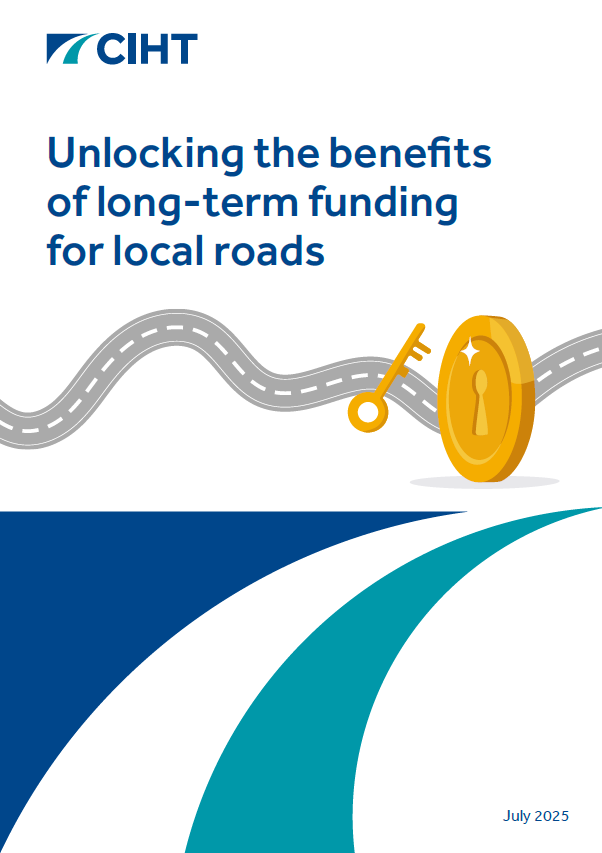

Highways and Transportation sector urges the government to prioritise long-term funding for local highways
Join other savvy professionals just like you at CIHT. We are committed to fulfilling your professional development needs throughout your career

Please complete and submit the form to access the report.
The Chartered Institution of Highways and Transportation (CIHT) is releasing a report that shows the clear benefits of adopting longer-term funding settlements for local roads in England.
Local roads represent the UK’s most extensive, heavily used, and under maintained infrastructure asset, making up 99% of the total road network and carrying 66% of all motor traffic vehicle miles in England.
Despite their critical importance to individuals, communities, and businesses—and a notional asset value exceeding £400 billion local roads remain subject to short-term, fragmented funding from different sources and funding pots. This funding approach has significantly hindered effective asset management and contributed to a growing maintenance backlog.
CIHT urges the government to act now and harness the potential opportunity for savings and reinvestment, which would directly support the government’s mission to drive economic growth and support the delivery of the government’s missions.
The potential savings produced by implementing five-year funding settlements can additionally contribute to advancing a range of broader governmental policy objectives—including progress toward Net Zero, greater climate resilience, workforce development, increased social value, and accelerated technological innovation.
Our research shows that by moving to a five-year funding settlement, there is potential to unlock 5 –10% of efficiency savings, which equate to appx. £1 billion to £2.2 billion. These significant savings can be reinvested back into the highway maintenance budgets of local authorities, providing more capacity for repairs and renewal, helping to stem the continued deterioration of a vital national asset.
In advance of the autumn budget 2025 we recommend the Department for Transport (DfT) to work with HM Treasury and Ministry of Housing, Communities & Local Government (MHCLG) and devolved administrations to establish a five-year funding settlement for local roads.
Treasury should prioritise funding for maintenance and renewals of the existing transport infrastructure before committing to building new ones. Specifically, CIHT calls for addressing the backlog in transport maintenance that is critical to ensure resilience and reliability.
DfT and devolved administrations should enable local authorities to maximise the benefits of long-term funding through providing:
This report was created with the support of the CIHT Technical Champions, the CIHT Partnership Network and industry experts. A special recognition is due to the report chair, Mike O’Dowd-Jones, for his support and advice and members of the advisory group: Emily See, Mitesh Solanki, and Jason Russell.
To read the policy report that provides a shorter summary of the full report click here
Join other savvy professionals just like you at CIHT. We are committed to fulfilling your professional development needs throughout your career